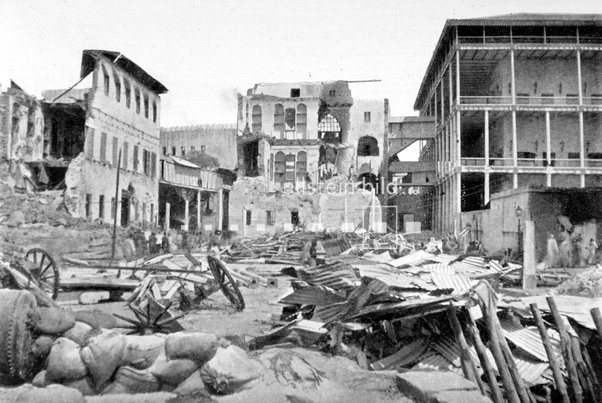In the annals of history, wars are often remembered for their scale, duration, and profound impact on nations and civilizations. However, amidst the epic battles and prolonged conflicts, there exists a curious anomaly: the world’s shortest war, which lasted a mere 38 minutes. In this blog, we delve into the fascinating story of the shortest war in history, exploring the events, causes, and aftermath of this fleeting but significant clash of empires.
The stage for the world’s shortest war was set in the late 19th century, against the backdrop of imperial rivalry and colonial expansion in East Africa. At the heart of the conflict was a disputed territory known as the Sultanate of Zanzibar, a small island nation off the coast of present-day Tanzania. Zanzibar had long been under the influence of the British Empire, but tensions simmered as local leaders sought to assert their autonomy and resist foreign control.
The catalyst for the shortest war in history came on the morning of August 27, 1896, when Sultan Khalid bin Barghash, a rival claimant to the throne of Zanzibar, seized power in a coup d’état. His ascension to the throne was not recognized by the British, who had installed Sultan Hamoud bin Mohammed as their preferred ruler. As tensions escalated, Sultan Khalid fortified his palace and mobilized his supporters, defying British demands to step down.
Faced with Sultan Khalid’s defiance, the British government swiftly mobilized its naval forces stationed in the region. Within hours, a formidable fleet of warships, including the HMS St. George and the HMS Thrush, was deployed to the waters off the coast of Zanzibar. At 9:02 a.m., the British issued an ultimatum to Sultan Khalid, demanding his surrender and the dismantling of his defenses. When the deadline expired at 9:30 a.m., the British ships opened fire on the Sultan’s palace, unleashing a barrage of cannon and gunfire.
Caught off guard by the overwhelming firepower of the British fleet, Sultan Khalid’s forces were quickly overwhelmed. Within minutes, the palace walls crumbled under the relentless bombardment, forcing the Sultan and his supporters to flee for their lives. By 9:40 a.m., just 38 minutes after the start of the bombardment, Sultan Khalid’s resistance was crushed, and the British flag was raised over the ruins of the palace. The shortest war in history had come to a swift and decisive end.
In the aftermath of the brief but intense conflict, Sultan Khalid fled into exile, and Sultan Hamoud was reinstated as the ruler of Zanzibar under British supervision. The terms of surrender imposed by the British included the disbandment of Sultan Khalid’s army, the payment of reparations, and the installation of a British resident to oversee the administration of Zanzibar. Despite the brevity of the war, its legacy endured as a testament to the power and reach of the British Empire.
The world’s shortest war may have lasted only 38 minutes, but its impact reverberated far beyond the shores of Zanzibar. In the span of less than an hour, the course of history was altered, and the balance of power in East Africa was decisively shifted. As we reflect on this remarkable chapter in military history, we are reminded of the swift and unpredictable nature of conflict, where fortunes can change in the blink of an eye. The story of the shortest war serves as a compelling reminder of the enduring legacy of imperialism and the complex dynamics of power and authority in the modern world.























